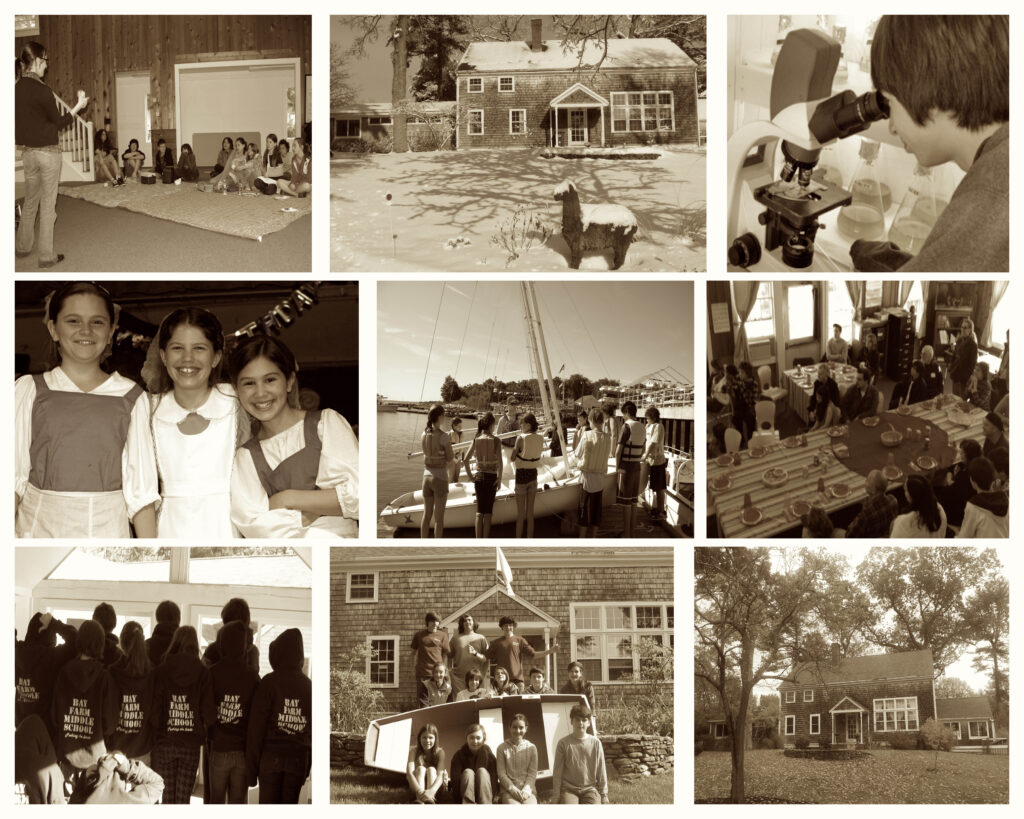Our History
“The best part of being part of Bay Farm is working together with others who share my dedication to building a school that truly educates young people, in the real sense of that term, and seeing the amazing results as our young people grow and learn and move on to new adventures beyond Bay Farm.”
Hauke Kite-Powell, President, BFMA Board of Trustees
Seeing a desperate need to provide a sufficient educational environment for their adolescent children, Bay Farm elementary parents banded together in late 2007 to examine the logistics of creating a dynamic Montessori-inspired Middle School.
BFMA Board President, Hauke Kite-Powell was part of the study group formed to analyze the feasibility of a middle school program and to then coordinate with BFMA administrators in crafting the logistical plans.
“The middle school at Bay Farm is important for several reasons. The middle school to high school transition is a more natural one for most students and families than the transition from sixth to seventh grade,” Kite-Powell said. “Additionally, the middle school years are formative and challenging for students as they enter their teenage years, deal with changing social dynamics, and become young adults. The supportive and close-knit environment of Bay Farm’s MS is an excellent home for those years.”
In 2008, the Board of Trustees agreed with the study group’s analysis that adding a middle school program was not only important, but economically and logistically possible – thanks in large part to the financial support of parents interested in seeing the project brought to fruition.
By 2009, after a rigorous curriculum development and personnel search, the Bay Farm Middle School was operating successfully with its first 12 students.

Much of the work that went into creating the middle school program was directed at extending the Bay Farm spirit into a completely new program in a new building. It was difficult work, but work that succeeded in providing what Kite-Powell calls an “unwavering focus on doing what’s best for our students”.
“A lot of what happens at ‘conventional’ schools is designed for the convenience of adults. Bay Farm’s learning environment is also unique in that it is much closer to life in the ‘real world’ that students will eventually work and live in than the environment in more conventional schools,” he says. “And it’s unique in giving a great deal of emphasis to educating the whole child — not just academics, but life skills, learning how to learn, learning how to be self-motivated and self-directed.”
Ten years later, the time has come for us to re-evaluate, reorient, and chart a course for our students that puts them on a path where they can meet the rest of the 21st century with the courage to make an informed and important change in the world.